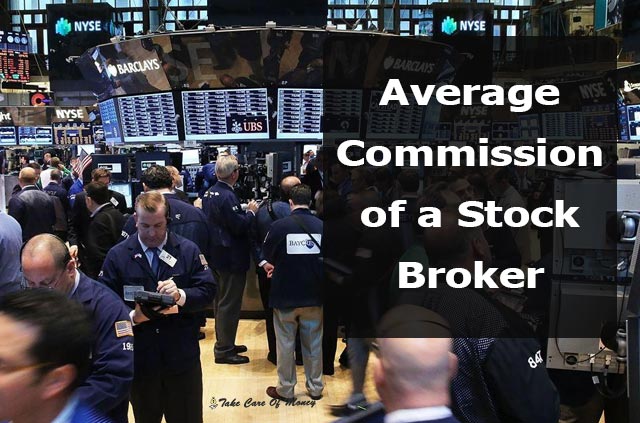Table of Contents
Average Stock Broker Commission
A stockbroker is one of the highest-paid jobs in the financial services industry. It has no limitation as to the amount of annual income except the sales capacity and the amount of work that the individual is willing to do. If you are a consumer, then the commission of the stockbroker can make the difference between the profit and loss of a marginal action.
Functions of Stock Broker
Stockbroker jobs originally involved the sale of stocks and bonds to individuals. Since packaged products, mutual funds, annuities and other types of investments became more popular, that soon changed. Online accounts soon took over as people realized that they could invest in a company without paying high commissions. Stockbrokers then became financial planners and included packaged products in their recommendations.
Stock Broker Commission Percentage
Brokerage houses pay brokers a portion of the income earned from sales. If they sell a stock, only a small part of that income goes on their paycheck, the rest goes to supervisors and agents/distributors. The more income the broker produces, the higher the percentage it receives. If the cost of the trade is the US $ 100, your stockbroker can make as little as the US $ 5 or as much as the US $ 33, depending on your contract and the number of sales you have that month.
How much do Stockbrokers Charge
Stockbrokers earn more money by recommending packaged products than when they buy a stock for you at the same cost. If you buy a no-load fund, most brokerage firms charge a trade administration service fee that is almost the same as a stock trade, if not more. Investment funds with a charge and annuities pay the most to the broker, with commissions of up to 20%. Even if the agent only receives a part of the commission, it is much more money than a sale of shares of the same amount.
The standard commission for full-service brokers are between 1% to 2% of a client’s managed assets. For example, Tom wants to purchase 100 shares of Company A at $40 per share. Tom’s broker earns a commission of $80 for facilitating the transaction ($40/share x 100 shares = $4,000, $4,000 x .02 commission = $80. When the commission is added, the total cost of the trade is $4,000 + $80 = $4,080).
A 12B-1 fee is a recurring fee that a broker receives for selling a mutual fund. The fees range from 0.25% to 0.75% of the total value of the trade. Annual maintenance fees range from 0.25% to 1.5% of the assets.
Manage
New products such as managed accounts make a large amount of the broker’s income. While the commission is less than the beginning, the broker receives the same commission every quarter. The commission is a percentage of the assets in your account. The brokerage house adjusts all managed accounts at once throughout the country, so the stockbroker does not have to spend much time on your account. As you accumulate more assets managed in this way, it has a steady increase in revenue.
Warning
If your agent recommends you to change money from an investment fund in favour of another that belongs to a different family of funds, you may simply be looking for more income instead of being worried about your well-being. The only reason to change funds is to take advantage of a trend, such as a growth in small capitalization securities. Most fund families have the same types of funds, and you can change within the family, at no additional charge.
Misconceptions
Unless you invest in a variable annuity or managed account, it costs more to have several families of funds. Brokers know that you will get a price differential if you buy a higher volume. By using several families of funds, you usually pay higher commissions and do not reach the point of interruption that reduces your cost.
Expert Information
Even if your broker recommends a variable annuity, managed account or mutual fund, that does not mean that he is trying to make more money. He can really believe that it is the best product for you. If you are going to buy these types of products, companies build the commission on the product if you buy it directly from the company or from a broker. It makes sense to buy from someone you trust and you can check as long as it doesn’t cost you anything else and you would have bought the product anyway.
